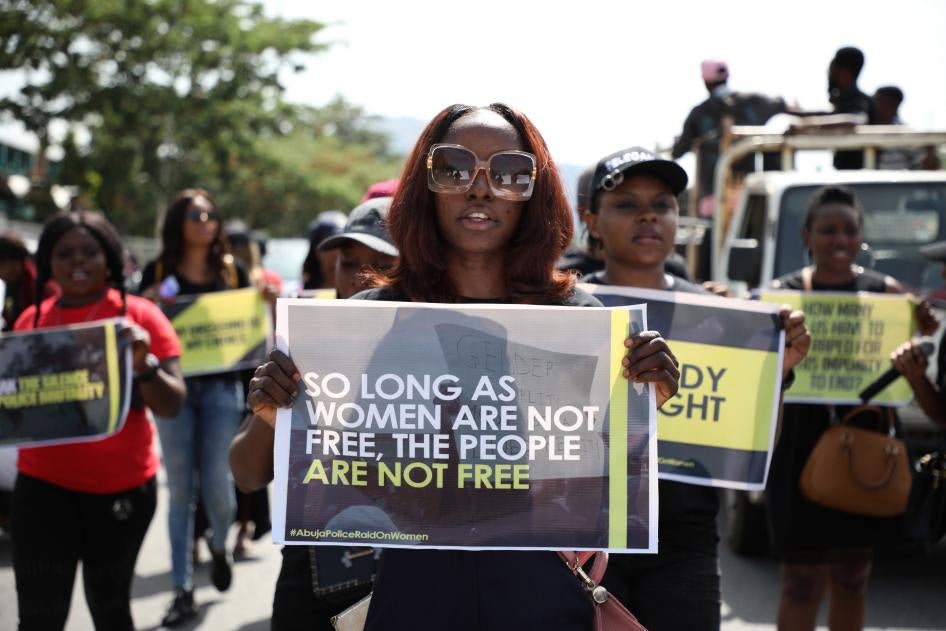On this International Women’s Day, women are taking to the streets in Abuja, Nigeria’s capital, to call on lawmakers to reconsider their decision to reject plans which would help to foster women’s equality and political participation in the country.
The proposed amendments to the country’s constitution which were rejected by federal lawmakers on March 1 included a move to grant citizenship to foreign husbands of Nigerian women, a right currently granted to Nigerian men with foreign wives, and the inclusion of affirmative actions to ensure that more women can participate in politics and government leadership.
The authorities should honor the essence of the day by listening to, and engaging with, the protesters to ensure that Nigeria’s Constitution can more effectively counter the damaging societal norms that exclude women from full participation in the nation’s affairs.
Nigeria ranks a lowly 139 out of 156 countries in the World Economic Forum’s Gender Gap Index and civil society groups have raised concerns that the country may be regressing in female representation in leadership.
While the Nigerian Constitution provides for gender equality and nondiscrimination, women continue to suffer injustices and marginalization. This is often as a result of discriminatory laws, religious and cultural norms, gender stereotypes, low levels of education, and the disproportionate effect of poverty on women.
Despite these obstacles, some individual women have pushed through to hold key leadership positions in Nigeria, often to great acclaim and to the benefit of society at large. But the playing field should be leveled to maximize the development of women in all spheres where they have been historically excluded and discriminated against.
The authorities and lawmakers alike should recognize the barriers that women face and ensure that Nigeria’s laws and policies help dismantle these barriers and pave a way for women to thrive in society.










